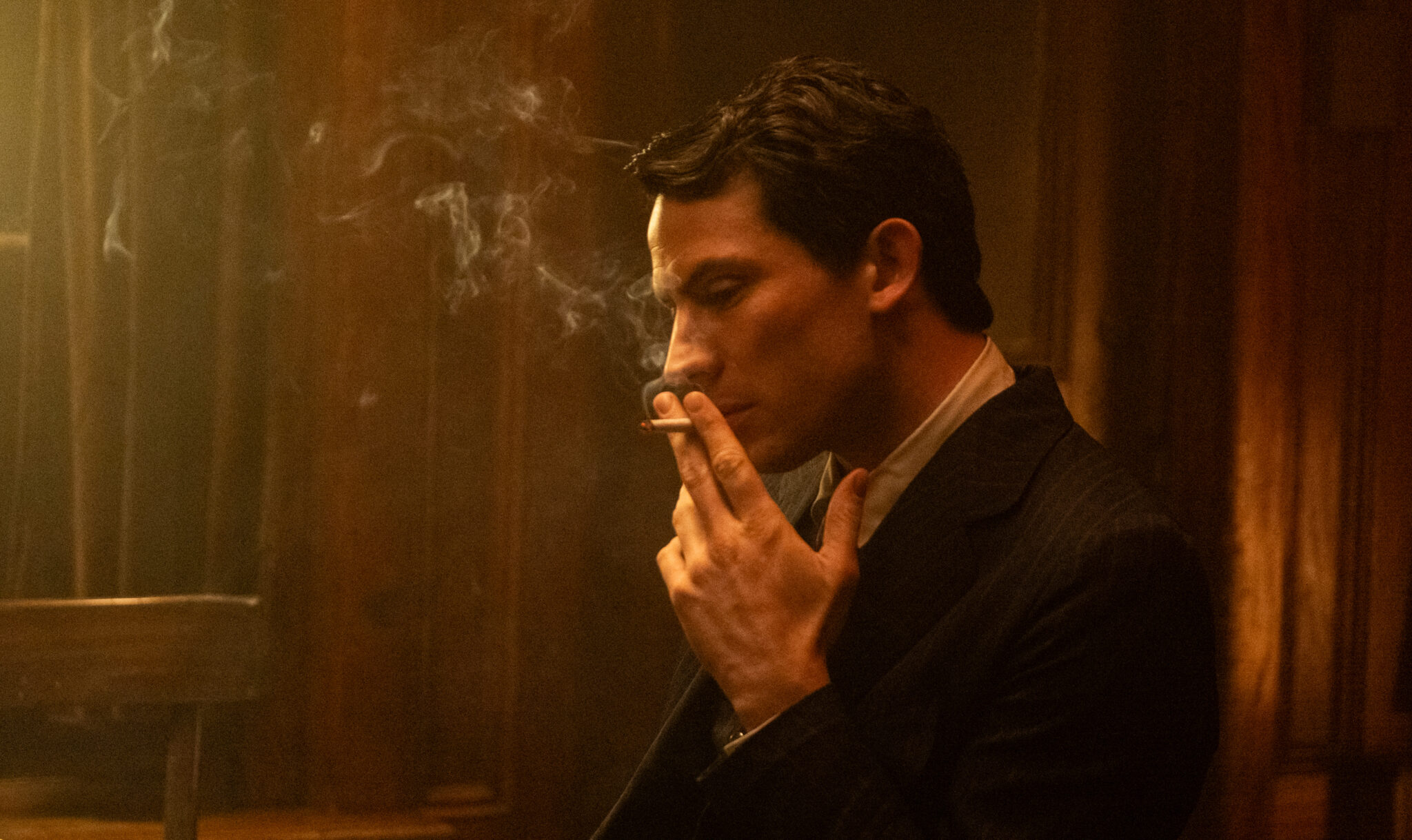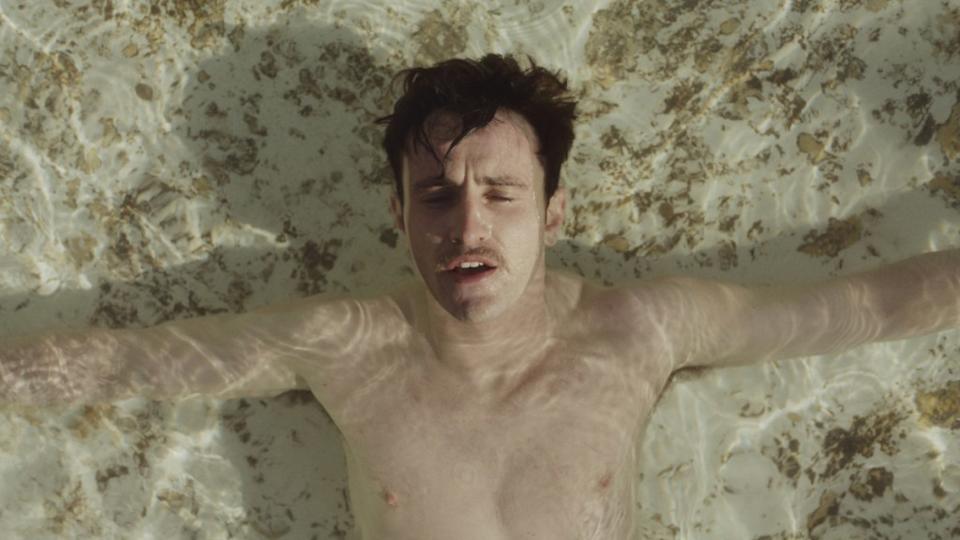Paul Mescal barely had a moment to breathe. One minute, he was wielding swords in Gladiator II, and the next, he was stepping into the quiet, reflective world of Lionel, a music student in early 20th-century New England. The physical transformation demanded by the two roles was stark, and Mescal didn’t have the luxury of a break. As he puts it, “I didn’t have as much time as I would’ve liked to lose as much Gladiator body as possible.” With barely two weeks between shoots, he was simultaneously studying Kentucky dialects and American folk ballads, reshaping himself from warrior to introspective artist.
Yet, this physical and emotional pivot marked the beginning of something deeply personal. Alongside co-star Josh O’Connor and director Oliver Hermanus, Mescal was finally realizing a long-held dream: bringing The History of Sound to life. Years in the making, the project had lingered in development hell due to the pandemic, industry strikes, and shifting availability. When the stars finally aligned in 2025, the result was a poignant and sweeping film that captures love, memory, and the echo of a life defined by fleeting but indelible connection.
A Story Years in the Making
The Challenge of Timing
When Mescal, O’Connor, and Hermanus first signed on to The History of Sound, their careers were just taking off. Mescal had recently made waves in Normal People, and O’Connor had gained international recognition for his turn as Prince Charles in The Crown. Hermanus, meanwhile, was emerging from his South African film roots, with a new British period drama (Living) that would later earn two Oscar nominations.
Despite the creative synergy, the trio couldn’t quite find the time to make the film. Financing stalled, the pandemic disrupted schedules, and strikes paralyzed the industry. “Their lives were literally changing,” Hermanus says. “We probably wouldn’t have been able to make this film when we wanted to, in 2022, because they weren’t the Paul Mescal and Josh O’Connor that we now know today.”
A Passion Project with Purpose
That long delay gave the team time to fall even deeper in love with the project. Adapted from Ben Shattuck’s short story, The History of Sound is a nuanced, lyrical tale that examines the lifelong resonance of a short-lived romance between two young men during World War I. It was never about making a traditional period piece or queer drama—it was about tapping into something more emotional, more universal.

The Film’s Narrative Core: Memory, Love, and Loss
Lionel and David: A Life-Defining Encounter
The film begins with a simple but powerful premise: Lionel (Mescal), a shy student at the New England Conservatory, meets David (O’Connor), a confident, wealthy fellow student, at a piano bar. Lionel hears David singing a folk tune—“Silver Dagger”—that instantly transports him to his childhood. That moment of recognition is the spark that ignites a romance.
From there, the story moves with grace and melancholy. Through narration by an older Lionel (voiced by Chris Cooper), we follow their tentative relationship, one shaped not by overt drama but by the slow accumulation of emotional weight. Their initial meetings are full of idealism and promise. But as time progresses, the realities of life intrude. They reunite years later, embarking on a journey to collect folk songs across the northeastern U.S.—a project that brings them physically close again while making the emotional distance all the more painful.
A Queer Love Story Without Tragedy
What sets The History of Sound apart is its refusal to conform to the traditional narratives of queer pain and secrecy. Hermanus, himself a gay man and known for emotionally raw films like Moffie, wanted to approach this romance with tenderness and openness. “I would love to go to the movies and watch a movie about a same-sex relationship that maybe makes me cry, but feels fulfilling,” he says.
The characters’ relationship isn’t marked by fear or repression, but by human complexity and the passage of time. Their intimacy is not forbidden—it is lived. Their love doesn’t need to justify itself; it just is. “We’re not going to make a movie about the problematizing of their relationship or their sexuality,” Hermanus explains.
The Performances: Intimacy, Chemistry, and Restraint
Casting the Connection
The film’s emotional weight hinges almost entirely on the chemistry between Mescal and O’Connor. It helps that the actors had a bond even before production began. O’Connor had reached out to Mescal after Normal People, and their connection deepened over Zoom during the pandemic. When they finally met in person, the friendship became foundational to the film. “We felt very boyish in each other’s company throughout,” Mescal recalls. “He brings out a childlike version of me.”
That closeness manifests in a layered, lived-in onscreen dynamic. There’s romance, certainly, but also a sense of shared intellectual and emotional curiosity. “It’s not just about sex and the intensity of falling in love,” Mescal says. “It’s deeper than that.”
Playing Lionel: A Quiet Evolution
Initially, Mescal had hoped to play David, the more expressive and outgoing of the two characters. But Hermanus envisioned him as Lionel and told him so one night, seemingly out of the blue. Mescal took time to reconsider the script and ultimately agreed.
His performance as Lionel is measured and restrained—deliberately so. “He’s a voyeur to the world,” Mescal explains. “He does stand up for himself, but to try and play that truthfully requires a level of restraint that I love playing in.” The contrast with his physical, assertive turn in Gladiator II couldn’t be more stark. Lionel is thoughtful, emotionally reserved, and quietly observant.
The Music: Folk Ballads and Emotional Resonance
Singing the Soul of the Story
Music is the film’s emotional heartbeat. The folk ballads Lionel and David collect aren’t just historical artifacts—they’re echoes of the characters’ internal landscapes. “Narrative songs historically tell the stories of love, or love lost, or morals and ethics,” Hermanus says. “They kind of become these oral history subjects.”
Composer Oliver Coates, who also worked on Aftersun, collaborated with singer-songwriter Sam Amidon to craft a delicate, haunting soundscape. Mescal, who studied voice in school, performs many of the songs himself. “These are beautiful songs,” he says. “They’re not songs that I think tons of people will be overly familiar with, so it’s nice to hopefully introduce some people to that kind of world of music.”
Songs as Structure
Hermanus structured the film like a ballad. It ebbs and flows, with crescendos and refrains. The central romance mirrors the shape of the music—beginning with brightness, moving through uncertainty, and concluding with nostalgic melancholy. “The story of The History of Sound—as a story itself, as a movie—is in itself one of these songs,” Hermanus says.
Themes and Impact: Beyond Romance
Time as a Character
Time permeates every frame of The History of Sound. It’s in the pacing, the soundtrack, and the framing of the narrative from Lionel’s later years. “You’re chartering a life,” Mescal says. “You’re just trying to let time do the work in the film, and let it percolate through Lionel.”
That approach won’t resonate with every viewer. Some may find the subtlety slow-moving. But for those attuned to its emotional register, the film becomes deeply moving. It’s less about plot than emotional accumulation—the way love defines us even after it’s gone.
A Life, Not Just a Love Story
Though the romance between Lionel and David is central, the film ultimately belongs to Lionel. It’s his memory, his voice, and his emotional growth we follow. “The film definitely has romantic gestures in it—intensely so in some places—but it is fundamentally about Lionel’s life,” Mescal emphasizes.
The message is that some loves aren’t meant to last forever in a conventional sense—but their echoes remain. The emotional imprint defines everything that comes after. “We all have people who define us,” Hermanus says, “but we don’t realize they defined us until it’s too late.”
Conclusion: A Quiet Masterpiece for a New Generation
The History of Sound is more than a romance. It’s a meditation on love, memory, and how moments shape a life. With extraordinary performances from Paul Mescal and Josh O’Connor, a thoughtful script from Ben Shattuck, and tender direction from Oliver Hermanus, the film stands as a testament to quiet, enduring connection.
It’s not the kind of movie that shouts its importance. Instead, it sings—softly, achingly, beautifully—like the folk ballads it celebrates. For those willing to listen, it leaves behind a resonance that lingers long after the credits roll.
- Natural Lip Filler – Elegant Lip Enhancement & Subtle Lip Augmentation - December 19, 2025
- Lip Augmentation in London – Lip Filler London & Natural Lip Enhancement - December 16, 2025
- Bonnie Blue secretly filming huge C4 show which will reveal ‘what her life’s really like’ after 1,000 men sex stunt - June 5, 2025





